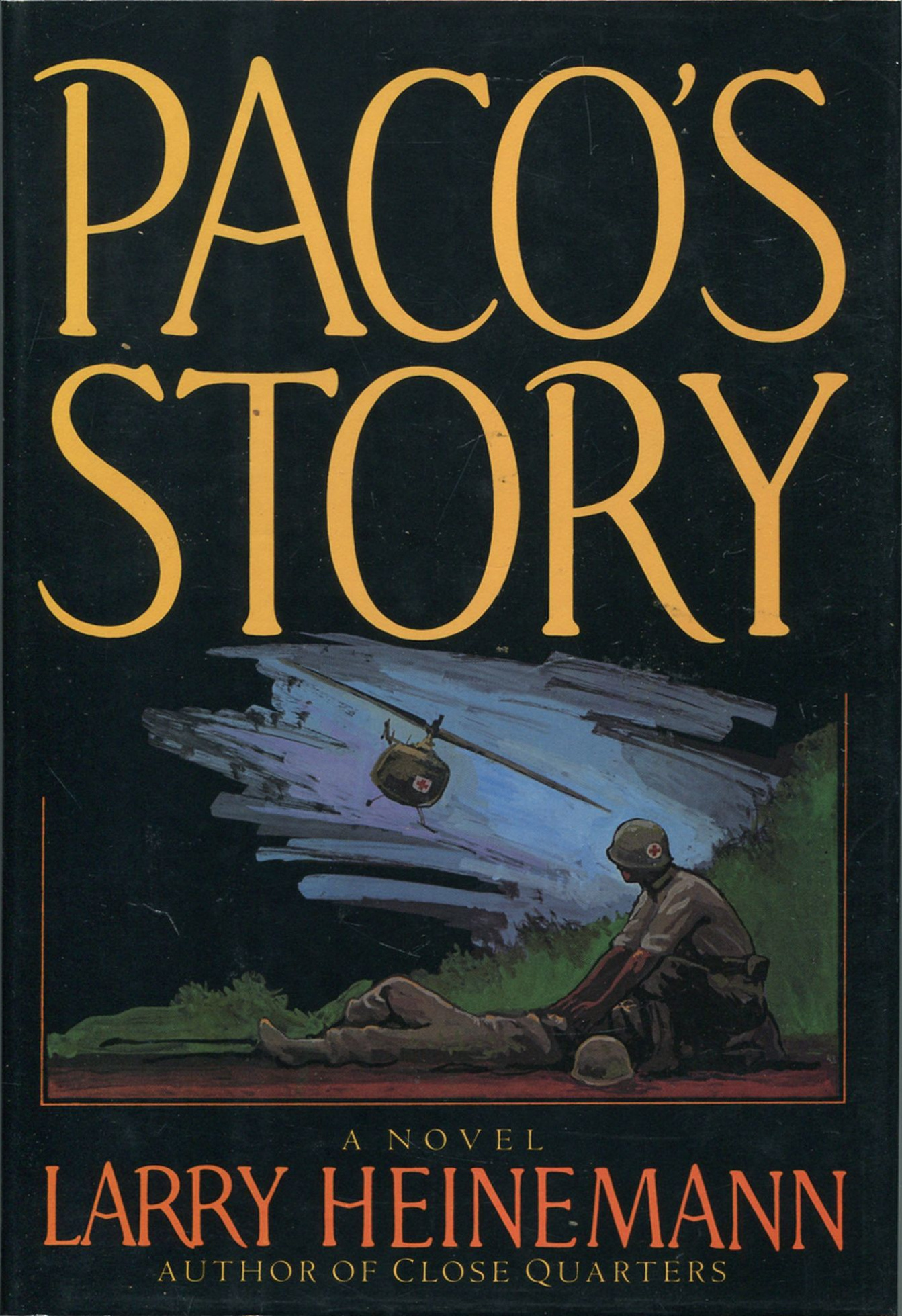Hardcover, 209 pages
English language
Published Dec. 1, 1986 by Farrar Straus Giroux.

Hardcover, 209 pages
English language
Published Dec. 1, 1986 by Farrar Straus Giroux.
Paco Sullivan's story commences when his infantry company is sent to a fire base named Harriette, a place with a reputation for being as good as "going home and spending the night in the house where you grew up." Despite precedent, a vicious firefight that becomes a massacre ensues. Paco is the only survivor—he is horribly wounded, a museum of wounds, left for dead nearly two days and discovered by a medic who is forever after incapacitated by his find.
We follow Paco back to the United States, where some years later he settles for washing dishes in a short-order restaurant. The Texas Lunch becomes the center of Paco's life, along with the hotel where he lives. One provides the nettling companionship of his boss, a World War II veteran who likes his drink; the other, a young woman who continually reminds Paco that he is, in the minds of …
Paco Sullivan's story commences when his infantry company is sent to a fire base named Harriette, a place with a reputation for being as good as "going home and spending the night in the house where you grew up." Despite precedent, a vicious firefight that becomes a massacre ensues. Paco is the only survivor—he is horribly wounded, a museum of wounds, left for dead nearly two days and discovered by a medic who is forever after incapacitated by his find.
We follow Paco back to the United States, where some years later he settles for washing dishes in a short-order restaurant. The Texas Lunch becomes the center of Paco's life, along with the hotel where he lives. One provides the nettling companionship of his boss, a World War II veteran who likes his drink; the other, a young woman who continually reminds Paco that he is, in the minds of others, a curiosity, a souvenir— and worse. But while apparently isolated he is, strangely, literally haunted by the ghosts of the men killed that day at Fire Base Harriette. Paco is chased and dispirited by the war, confronted by it every time he looks down at himself, or daydreams, or dreams.
This is a workingman's tale, a vivid reminder that the young blue-collar men of this country bore the deadly brunt of the long and unhappy Vietnam War. It puts forth endless ironies, "more bitter than tongue can tell," and both the ordinary and the almost unthinkable horrors of a G.I.'s life. As in other superb war stories of this half of the twentieth century, the richly detailed impact of the telling depends on frank language and blunt imagery.